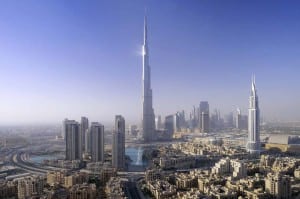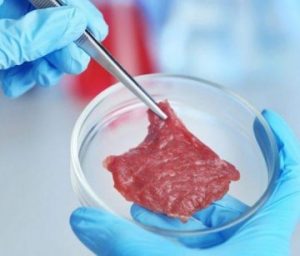By Majorie van Leijen Emirates 24/7
Beware of gelatin, claim some experts
 With Dubai set to become the hub of global Islamic economy, the International Food and Safety Conference Dubai that begins today will focus on ‘halal food’ at a full-day seminar bringing together several international experts.
With Dubai set to become the hub of global Islamic economy, the International Food and Safety Conference Dubai that begins today will focus on ‘halal food’ at a full-day seminar bringing together several international experts.
Within a three-year time frame, Dubai aims to become the global authority for certification of halal products.
Apart from the introduction of a new set of rules and regulations to set an example on the international stage, Muslims within the UAE should be guaranteed that the products on the shelves are 100 per cent halal, ranging from food products to cosmetics to carpets.
A glimpse into a halal kitchen reveals that it is all but straightforward to certify a product ‘halal’.
“Food these days no longer comes from the cow or the goat raised in the backyard, in which case you would know exactly what is fed to the animal, how it is raised, how it is slaughtered etc. This means you know what you are eating.
“In contrast to this, nowadays we have lots of meat in the market coming from almost every corner of the world where we do not know the details mentioned above,” explained Farah Al Zarooni, Director of Standards at the Emirates Standardisation & Metrology Authority (Esma) who is speaking at the Halal seminar tomorrow.
“In addition to this we consume plenty of processed food in which there are other things involved than only the meat. Here we are not sure of the ‘halalness’ and safety aspects of the food, which are very crucial.”
Raw materials used in the food processing chain, additives, or other ingredients are some of the items which will come under close scrutiny in the months to come. “A manufacturer might produce food locally, but he might import raw material from any other country.
“The rules and regulations we are planning to implement will regulate this part of the process, so when the consumer purchases the product, he has the trust that the product is halal.”
We are looking at two aspects of a product being halal, explained Mohammad al Badri, CEO of ESMA, which is the government body responsible for setting the new standards. “A food product should not be derived from animals that are haram, and the animal should be slaughtered according to the Islamic rituals.” In Islam the consumption of alcohol and anything that derives from pork or dog is forbidden, said the Official Fatwa Centre when asked by Emirates 24|7.
Besides the obvious pork meat there are certain ingredients that may contain pork by-products when produced abroad.
A common example is gelatin, which has various sources but may contain the waste parts of swine. Dairy products like whipped cream, sour cream and cheese may contain gelatin.
Other products that may contain pork by-products are lard, animal fats, animal glyceride, hydrolyzed animal protein, enzymes, emulsifiers, monostearates, mono and di-glyceride.
The list of avoidable ingredients does not stop with food. Depending on the manufacturer, pork by-products may exist in water filters, insulation, rubber, antifreeze, certain plastics, floor waxes, crayons, chalk, adhesives and fertiliser, in addition to more daily use products such as lipstick, shaving cream, toothpaste, had lotion, bath soap and shampoos, warns online source, named ‘The Islamic Bulletin’.
And then there is the use of alcohol in some procedures. Vanilla extract is derived from the vanilla plant using alcohol, and often preserved in alcohol too, claims another online source.
UAE residents do not need to worry about the food chain in the UAE,” said Al Badri. “Currently all food products on the shelves are halal, we are looking at the regulations in this sector.
“After we have completed the regulations for food products, we will move on to include cosmetics and other products, such as carpets, for example,” he said. These sectors have not yet been monitored with the eye on halal production, and the UAE aims to take a pioneering role in this.
Mohammad al Badri, CEO of ESMA and Farah Al Zarooni, Director of Standards at the Emirates Standardisation & Metrology Authority (Esma) will also be speaking about Halal Standards in two separate sessions at the Global Islamic Economy Summit, 25-26 November 2013, Madinat Jumeirah, Dubai



